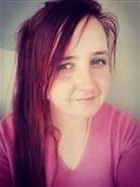






Motivated by the desire to promote cross-cultural understanding and challenge preconceptions, Shogaolu has experience in incorporating ideas and data to capture a captivating story.
“Films can provide a window into history, or simply shed light on an untold or forgotten story. It's more than just a form of storytelling, though—it's a way to present new perspectives on an issue and foster long-term dialogue and change, which is why films are the ideal medium for my work,” she says.
Un(re)solved, her Emmy-nominated work that tells the stories of victims of racially charged murders, speaks exactly to these ideas.
“Accurate, authentic representation has the power to break down boundaries, expose traditional minds to fresh concepts, create powerful role models, and even serve as a source of inspiration,” she says.
We spoke with her to find out more about her work, why filmmaking remains an imperative medium of storytelling and women in the industry…
I am a storyteller, artist and creative technologist. My passion for telling stories in new and innovative ways led me to create Ado Ato Pictures where I am the founder and creative director.
Ado Ato Pictures is a film studio that creates and distributes film, television, interactive, experiential, and immersive media for theatres, home entertainment, installations and activations around the world. The studio's multimedia work explores socially and globally relevant issues, particularly those frequently ignored by traditional entertainment platforms.
For many years, Frontline journalists investigated 152 racially-motivated crimes, in which the perpetrators were never brought to justice. The creators of PBS's investigative journalism series, Frontline, collaborated with me to create the multi-platform experience Un(re)solved.
My approach to this was to regard these 152 names not just as names, but as human beings. Sadly, crimes or violence against people of colour is sometimes normalised. I didn't want to just focus on their deaths or how they were murdered; I wanted to represent their cultures and lives as accurately as possible. Thus, the immersive installation, Un(re)solved, evolved into a "living quilt" inspired by African American quilting traditions.
Filmmaking has the potential to tell intersecting stories and create unexpected content that pushes boundaries. They are impactful advocacy and social change tools. There are numerous stories to tell right now that are rarely given the opportunity to be heard in today's contemporary mediascapes, ranging from the plight of refugees to the realities of human trafficking.
Many truly insightful stories needed to be told but were not of much interest to conventional media. We needed a place to share them, and what better medium than through film?
We can't deny that women are making waves in the filmmaking industry today, but it's an unfortunate fact that the majority of women who work in film are rarely behind the camera. This is particularly true for Black, Latina women such as myself.
In my opinion, the filmmaking industry is still a male-dominated space. Women are compelled to work twice as hard and would still lack the opportunity to work behind the scenes in production. Women’s plight to be given a voice in the filmmaking industry does not imply that women are attempting to replace men; we only seek proper representation, as women's and non-binary folks' stories are just as important as men’s stories.
The film industry has to give more attention and support to female filmmakers. That is to say, to recognise potential without any gender bias. There is a lack of role models for women, which is why there need to be more female filmmakers lauded and awarded for their work. After all, seeing others like you who managed to overcome obstacles that you’re currently experiencing gives you a sense of inspiration and empowerment.
Additionally, there is a wealth of talent among female filmmakers and, more so, those who are aspiring to make their mark in the film industry. It’s rather unfortunate that women tend to be unheard, invisible, and unwelcome. Women have just the same right to have their dreams and worldviews reinforced and validated. A more welcoming space for women in the film industry is one that will provide them with the confidence they need to step in and make a difference.
My advice would be to persevere. Even though it's still a lonely world for female filmmakers, this should not stop you from following your passion. More and more women are trying to make waves in the industry, so you are definitely not alone. Keep honing your craft, and be proud of it.
Once you get through the bias attempting to keep female filmmakers from achieving their passion, it will be your responsibility to empower and help the other young women to see their visions through fearlessly.
